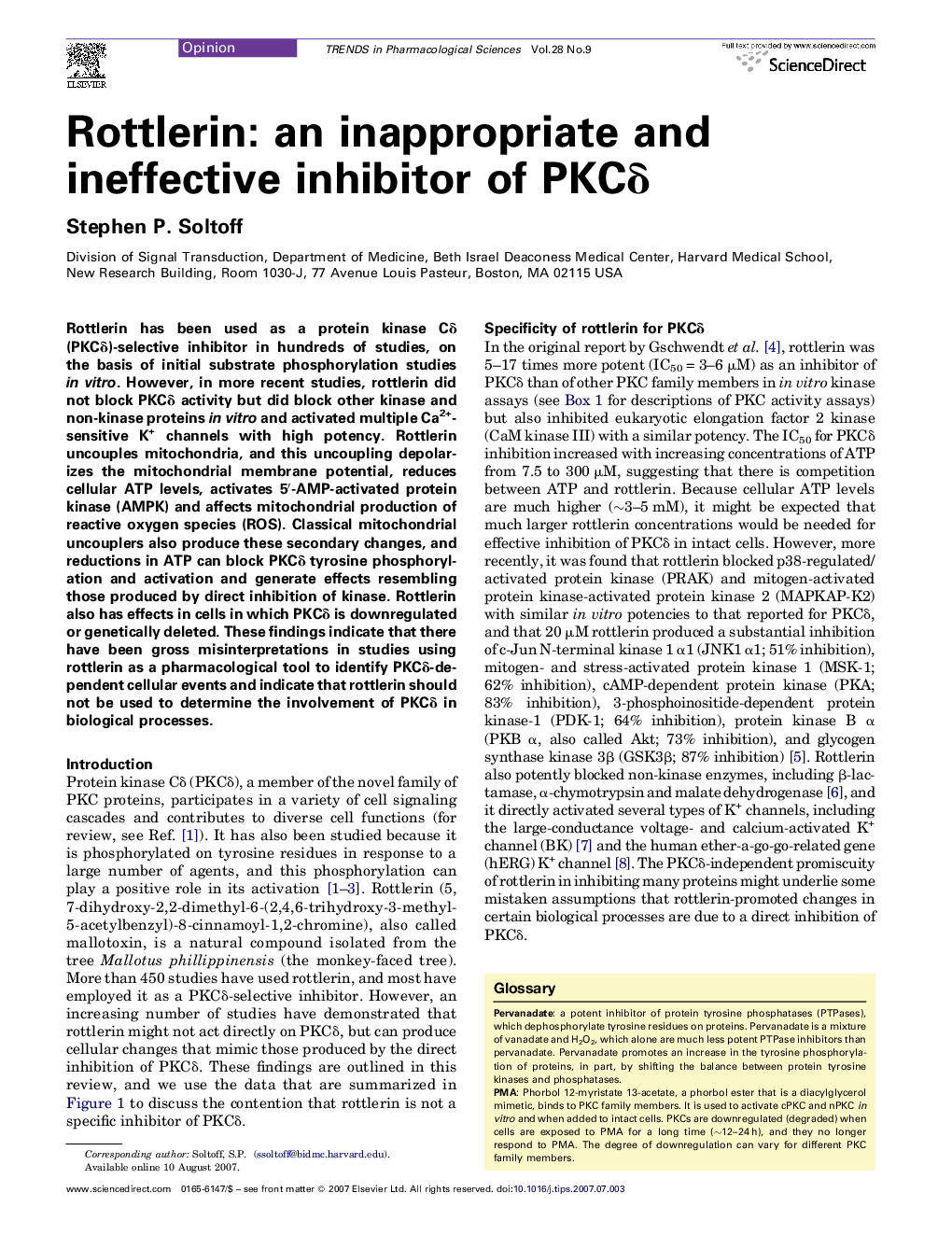| Article ID | Journal | Published Year | Pages | File Type |
|---|---|---|---|---|
| 2573590 | Trends in Pharmacological Sciences | 2007 | 6 Pages |
Rottlerin has been used as a protein kinase Cδ (PKCδ)-selective inhibitor in hundreds of studies, on the basis of initial substrate phosphorylation studies in vitro. However, in more recent studies, rottlerin did not block PKCδ activity but did block other kinase and non-kinase proteins in vitro and activated multiple Ca2+-sensitive K+ channels with high potency. Rottlerin uncouples mitochondria, and this uncoupling depolarizes the mitochondrial membrane potential, reduces cellular ATP levels, activates 5′-AMP-activated protein kinase (AMPK) and affects mitochondrial production of reactive oxygen species (ROS). Classical mitochondrial uncouplers also produce these secondary changes, and reductions in ATP can block PKCδ tyrosine phosphorylation and activation and generate effects resembling those produced by direct inhibition of kinase. Rottlerin also has effects in cells in which PKCδ is downregulated or genetically deleted. These findings indicate that there have been gross misinterpretations in studies using rottlerin as a pharmacological tool to identify PKCδ-dependent cellular events and indicate that rottlerin should not be used to determine the involvement of PKCδ in biological processes.
